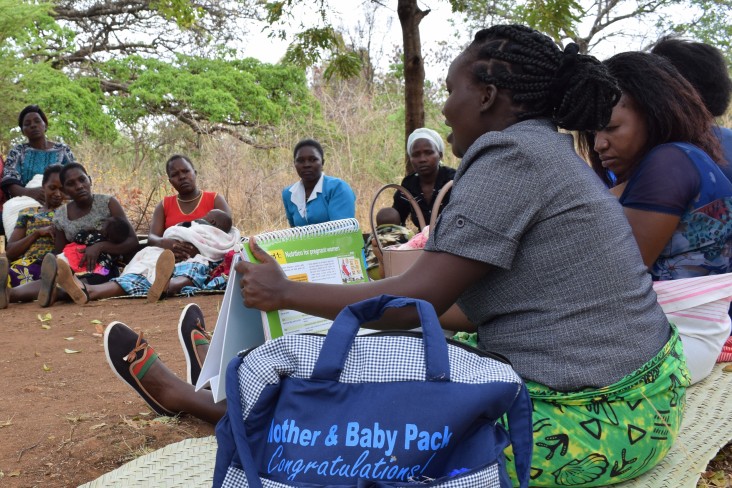Speeches Shim

A few weeks later, Laticia was invited to join other “lead mothers” and community volunteers from the area at training workshop organized with support from USAID’s Kenya Nutrition and Health Program Plus. At the workshop, Laticia and other participants were taught basic facts about nutrition, including benefits of exclusive breastfeeding and complementary feeding for young children. They also learned about different food groups and how to prepare nutritious meals using affordable local ingredients. Through this training, Laticia and the other “lead mothers” now lead group education sessions using Kenya’s National Maternal, Infant, and Young Child Feeding (MIYCN) Guide, developed with support from USAID’s nutrition program.
Esther Gakii, a 30-year-old mother of two, attends the group education sessions. “In this group, we share our stories and learn from one another,” she says. “We also talk about social issues and advise one another. I always look forward to the meetings.” Esther suffered frequent backaches while breastfeeding her first born. From the discussions in the group and stories from other mothers, she realized that her backaches were caused by poor positioning during breastfeeding. “With my first child, I could only breastfeed for a few minutes. Now I can sit and breastfeed for 25 minutes continuously,” she says.
Laticia Kawira, a small-scale farmer, was eight months pregnant with her second child when health workers told her about a new mothers’ support group at the Nkondi Health Centre in Tharaka South, Tharaka Nithi County, Kenya. Laticia agreed to join the group, known as the KEMA mother-to-mother support group. During their first meeting, members elected Laticia to be their leader. “I think they saw leadership qualities in me, so I accepted,” says Laticia.
The nurse in charge of Nkondi Health Centre also sees benefits from this group: “We used to get many underweight and malnourished babies, but this is no longer the case,” she says. Mother-to-mother support groups play an important role in the success of the Baby-Friendly Community Initiative (BFCI), an approach that promotes exclusive breastfeeding and good nutrition for pregnant women, mothers, and young children. USAID’s Kenya Nutrition and Health Program Plus implements BFCI in Busia, Kitui, Marsabit, and Isiolo counties as well. These counties also benefit from interventions supported by Feed the Future to promote agriculture for nutrition (agri-nutrition).

Comment
Make a general inquiry or suggest an improvement.